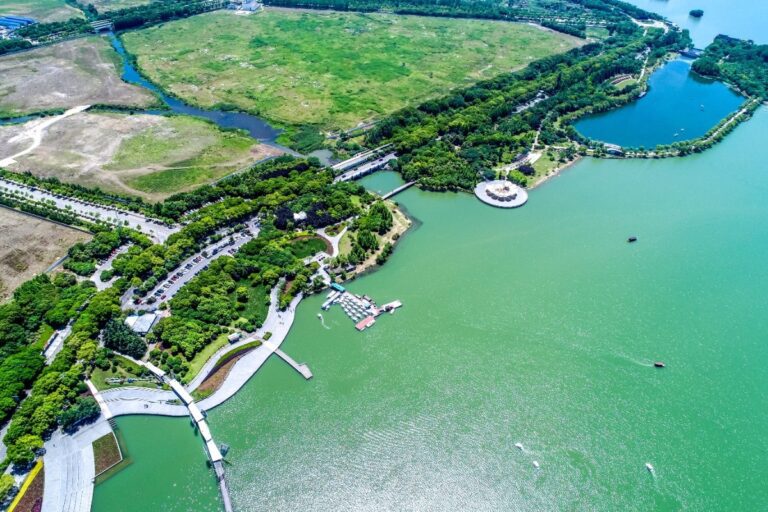September 15 2025, marked the fifth anniversary of the ceremonial signing of the Abraham Accords at the Trump 1.0 White House, normalising the ties between Israel and each of Bahrain and the United Arab Emirates. It gave second wind to the hopes for regional reconciliation as a similar previous rapprochement between Israel and each of Egypt and Jordan in 1979 and 1994, respectively. Israel’s relations with both turned into a “cold peace” with limited bilateral engagements being sustained. Further, crucial negotiations to resolve the Israel-Palestine issue based on a two-state solution were finally aborted in 2000, leading to the second Intefadah. In 2005, Hamas militants gained power in the Gaza Strip and set the stage for periodic frictions with Israel. The year after, Lebanon’s Hezbollah militia and Israel fought an inconclusive 34-day-long war. Israel also continued with its vigorous settlement-building programme in the Occupied West Bank – ignoring the widespread international disapproval. Otherwise first two decades of this century were marked by geopolitical stagnancy and stalemate.
The Abraham Accords, signed in 2020, disrupted the two decades of stagnancy and stalemate in the Middle East and created new geopolitical alignments. Unlike the frozen relations Israel has had with Egypt and Jordan, the new ties have shown positivity and economic dynamism. While basic differences on the Israel-Palestine dispute persist, these have been set aside to let the People-to-People contacts, mutual trade and investments flourish. Above all, Israel has leveraged these ties to create an unspoken alliance against Iran, the common threat. At the same time, the harsh Israeli policies in the Occupied Palestinian Territories intensified after an extreme right-wing coalition took power in the country in December 2022, and have vitiated the budding bromance, making it more of a public liability. The UAE and Bahrain have tried to deflect the criticism of their ties with the “Zionist Enemy” by going the extra mile in rendering humanitarian assistance to the victims in Gaza and the West Bank. The situation has worsened even further as the Israeli Defence Force has recently intensified their ferocious assault on Gaza City. Last but not least, the Israeli September 9 air attack on the Hamas office in Doha was the first time the Israelis attacked a Gulf Cooperation Council country, viz. Qatar, which enjoyed security guarantees from the United States. While Qatar has not been a party to the Abraham Accords, it has played an energetic mediatory role involving Hamas and Israel. Yet, the Israeli bombing bombing of a GCC capital with the US standing idly by has dented the rationale for joining the Abraham Accords. The reverberations of the Doha explosions and still being felt in the GCC countries.
The United States diplomacy built upon the initial breakthrough by roping in Morocco and Sudan into the Abraham Accords. While Morocco was more than willing to join in following Washington’s acceptance of Rabat’s sovereignty over the disputed Western Sahara, Sudan’s eventual descent into a bitter civil war stymied any prospects of Khartoum doing so in a meaningful way.
In the past five years, the US diplomacy, under both the Trump and Biden administrations, has pushed hard to persuade the Kingdom of Saudi Arabia to join the Abraham Accords. Washington hoped that, given the Saudi geopolitical heft and its high profile as the Custodian of Islam’s two Holy Shrines, Riyadh’s recognition of Israel would set the precedent for other Arab and Islamic countries to follow. After a long demurral, Riyadh putatively agreed to do so subject to the United States fulfilling three tough conditions: a binding US-Saudi defence treaty, transfer of nuclear technology and supply of state-of-the-art American weapon systems. The Americans, in turn, pointed out that a binding binational defence treaty would require ratification by the US Congress, which would be possible only after Riyadh recognised Israel. The finer details and choreography were being sorted out when, on October 7, 2023, Hamas attacked Israel[1], and the latter’s subsequent invasion of Gaza created a new situation, forcing Saudi Arabia to rethink its policy about joining the Abraham Accords. Since then, it has publicly declared that apart from the aforementioned three pre-requisites, it would recognise Israel only when a pathway to a two-state solution is clearly established. Most observers believe that, given the Israeli obduracy on the two-state solution[2], Riyadh’s last condition is unlikely to be met anytime soon. In fact, with President Trump suggesting that Gazans be exiled to neighbouring Arab countries (who have strongly rejected the move) to create an “International Riviera” in Gaza, and some Israeli hardline ministers talking about the takeover of the West Bank, a fairly piquant and provocative situation has been created for the five Arab countries that recognise Israel.
[1] Some observers believe that Hamas executed its attack, timing it to thwart Saudi Arabia from joining Abraham Accords.
[2] On July 18 2024, the Israeli Knesset passed a resolution by 68-9 majority to reject Palestinian statehood.
Recognising that as long as the Gaza and Iran-related hostilities continue, no new Arab countries would join the Abraham Accords, Washington has cast its net wider to several Muslim countries in Central and Southeast Asia to do so. No success has yet been reported, but the intermittent reports suggest that the efforts in this direction are unremitting. Separately, the new Syrian regime is being pushed to open negotiations with Israel.
While the Doha Arab-Islamic Summit held after the Israeli air attack on Hamas in Qatar strongly condemned Israel and reaffirmed the concept of collective security and shared destiny of Arab and Islamic States, it did not specifically ask the Abraham Accords countries to downgrade their ties with Tel Aviv. At the same time, the UN Independent International Commission of Inquiry on the Occupied Palestinian Territory issued a report on September 16 stating that Israel had committed genocide against Palestinians in the Gaza Strip. The Commission urges Israel and all States to fulfil their legal obligations under international law to end the genocide and punish those responsible for it. Further, several Western countries, including Spain, the UK, Canada, Australia, Portugal and France, have announced their formal recognition of the State of Palestine – a move that Israel has rejected as awarding a “prize on terrorism.” While some extremist Israeli ministers have called for annexation of the West Bank into Israel, Prime Minister Netanyahu has announced that Israel would not “bow to the foreign pressure”, threatening to unveil his tough response soon. All these moves seem to be reaching a crescendo with the annual session of the UN General Assembly that began on September 22. In the same context, moves to disarm Hezbollah in Lebanon and corral Iran into giving up its nuclear programme altogether are underway.
India and the Abraham Accords:
Five years ago, when the UAE and Israel announced mutual recognition, the official spokesman of our Ministry of External Affairs had the following to say, “India has consistently supported peace, stability and development in West Asia, which is its extended neighbourhood. In that context, we welcome the full normalisation of ties between the UAE and Israel.” Indeed, India has several substantive reasons to support détente between Israel and the Arab World. It removed the need for New Delhi to be circumspect and cagey about the ties with Israel, particularly in the defence and security sector. Such development also took away the Pakistani sting about India being in league with Israel to burnish their own credentials with the Arab countries. It also paved the way for trilateral synergies between concerns from Israel, the UAE and India. In practical terms, the Abraham Accords helped the geopolitical stability of the Gulf region, where India has vital stakes, including over 9 million strong diaspora, sourcing of nearly half of our crude requirements, etc. Here, one should cite the UAE being India’s third-largest trading partner and fifth-largest investor. In the same direction in 2023 at G-20’s New Delhi Summit, India-Europe Economic Corridor (IEEC) was proposed to connect the trade flow between India and Europe through the Arab-Israeli land bridge. However, this ambitious project, too, has been in limbo pending de-escalation in the regional security situation. Similarly, in July 2022, an I2U2 Group comprising India, Israel, the UAE and the US was created as a strategic partnership spinoff from the Abraham Accords. In its first summit, it declared its intention to collaborate on “joint investments and new initiatives in water, energy, transportation, space, health, and food security.” Though $2 billion worth of food parks were mooted in India with Emirati funding, their current status is not known. The Group also decided to put up a 300 MW wind and solar power plant in the Gujarat state of India. During the past two years of Gaza strife, no I2U2 engagement seems to have been reported.
Conclusion:
With all these yin-yang movements underway, the Abraham Accords seem to have reached a denouement stage. While Israel’s ties with each of Bahrain, the UAE and Morocco, the three Abraham Accords partners, have persisted due to shared strategic concerns, the Arab sides have been on the defensive and low-key due to the Arab Street’s anger at Israeli aggressive actions in Gaza and elsewhere. In the foreseeable future, there is no sign of any let-up in the hostilities. Depending on the wider regional endgame, the Abraham Accords could either lapse into a “cold peace” situation at a slightly higher level of interaction than Israel has with Egypt and Jordan, or they could expand to other Arab and Muslim countries paving the way for Israel to co-exist peacefully with Palestinians and other Arabs in West Asia. India, an important stakeholder in regional stability, would need to hold its breath till the dust settles.
The previous issue of Middle East and Current Geo-Economics of Oil are available here: LINK

























